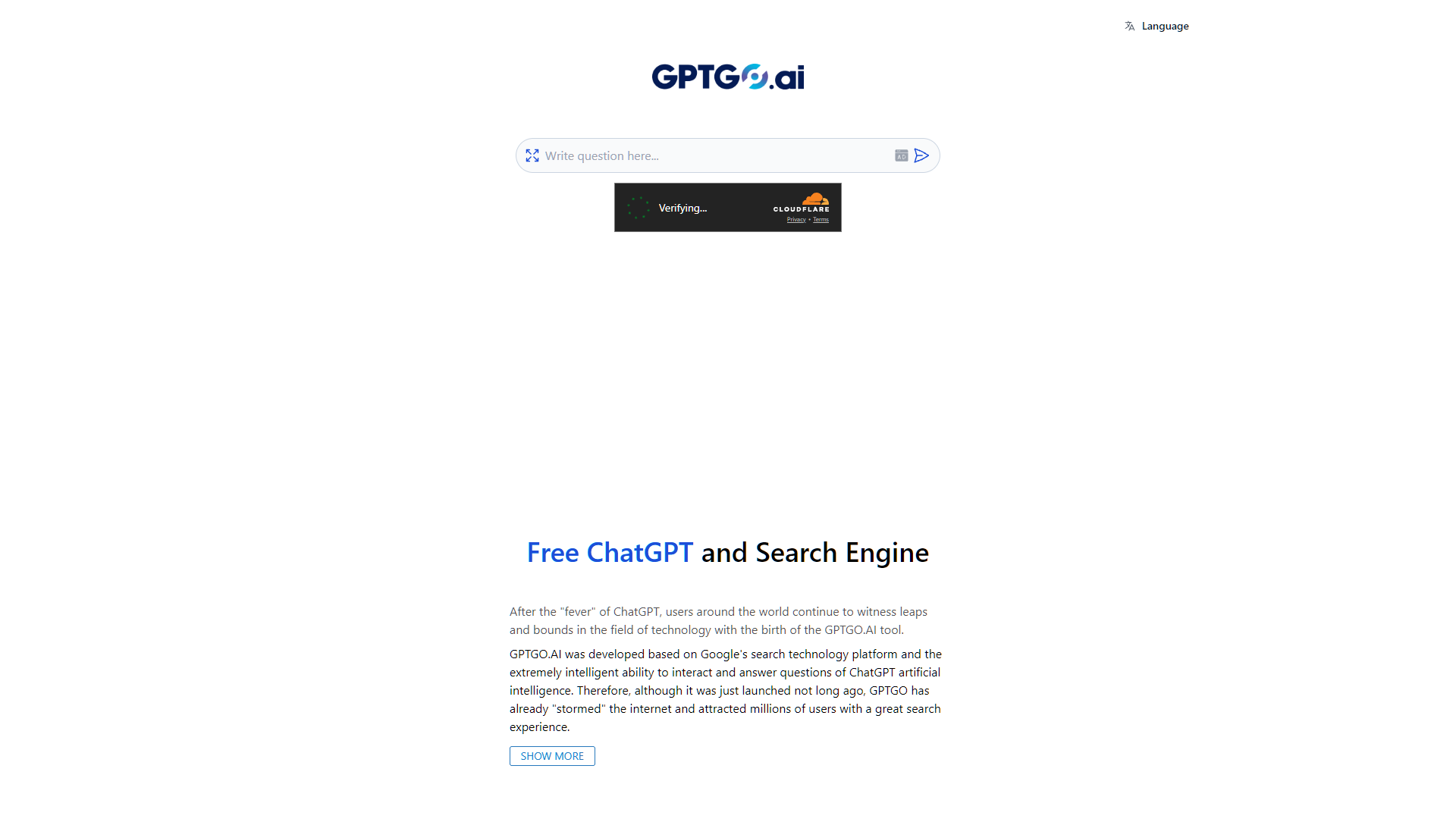Overview
GPTGO is a cutting-edge AI tool that leverages the robustness of Google's search technology and the intelligent conversational capabilities of ChatGPT. This innovative platform is designed to enhance the search experience by providing quick, accurate, and diverse results through a seamless integration of Google's search API and OpenAI's extensive data repository. With its ""Ask GPT"" feature, users can engage in direct interactions with ChatGPT, obtaining precise answers and creative insights.
The tool is renowned for its speed and efficiency, delivering search results instantly across over 100 languages, making it highly accessible on a global scale. GPTGO is compatible with various devices and operating systems, ensuring users can access information conveniently, whether for academic, professional, or personal purposes.
GPTGO is committed to user privacy and security, operating without storing personal data and maintaining anonymity in user interactions. It is available for free and can be accessed from any web browser, offering a user-friendly interface that catifies to a broad audience, including students, professionals, and casual users seeking knowledge or entertainment. The platform also encourages user feedback to continuously refine and enhance its capabilities, ensuring it remains at the forefront of AI-driven search technology.
Key features
- Integrated Ask GPT: Users can interact directly with ChatGPT for accurate answers from OpenAI's extensive data warehouse, enhancing the search experience.
- Google search integration: Combines Google's search API to deliver quick, diverse search results along with concise answers, improving information retrieval.
- Exceptional speed: Offers rapid search and response capabilities, allowing users to obtain information instantly with a single click.
- Multi-language support: Supports over 100 languages, making it accessible and useful for a global audience seeking information in their native language.
- Privacy and security: Prioritizes user privacy by not storing personal information and ensuring all interactions are anonymous and secure.
- Device compatibility: Accessible on various devices and operating systems, providing a seamless and consistent user experience across platforms.
 Pros
Pros
- Customizable interface: Users can tailor the layout and settings to fit their preferences, enhancing usability and satisfaction with the tool.
- Continuous updates: Regularly updated to include the latest features and improvements, ensuring the tool remains cutting-edge and efficient.
- Collaborative features: Allows multiple users to work together in real-time, facilitating teamwork and shared projects efficiently.
- Advanced filtering options: Provides sophisticated filtering tools to refine search results, making it easier to find the most relevant information quickly.
- Interactive tutorials: Offers guided tutorials to help new users understand and utilize all features effectively, improving user engagement.
 Cons
Cons
- Dependency on connectivity: Requires a stable internet connection to access all features, limiting usability in areas with poor connectivity.
- Overwhelming options: The vast array of features and integrations might overwhelm new users, potentially complicating the user experience.
- Algorithmic biases: Despite extensive data sources, responses may still reflect inherent biases present in the training data of AI models.
- Update dependencies: Regular updates are necessary to maintain functionality and security, which might disrupt access temporarily.
- Limited offline functionality: Most features, including search integrations and language support, are unavailable without an internet connection.














